President Muhammadu Buhari has rather wisely turned the spotlight on recovering stolen funds. The President recently confirmed that his government has “received firm assurances of cooperation from the U.S. and other countries on the recovery and repatriation of funds stolen from Nigeria. According to the President, “the government in the next three months will be busy getting facts and figures needed to help us recover our stolen funds in foreign countries.”
It’s no coincidence that the first priority of the Buhari government is not to throw corrupt officials in jail but to recover stolen funds. Nigeria is broke, and several of its 36 states can’t even pay their workers’ salaries. But this is hardly surprising given that for many years the country has fallen victim of systematic stealing by career politicians and soldiers dabbling in politics. Previously considered a matter of “little brown envelopes” corruption is now a huge “profitable business” for politicians (and their families and friends, the so-called go-betweens or ‘looting pipes’), corporations and financial institutions and centers.
Stealing is odious, illegal and immoral but stolen funds don’t stink, as corrupt officials continue to empty the public treasuries for personal gains–to amass luxury cars, buy extravagant homes, and enjoy exotic vacations–to the amazement and anger of millions of Nigerians. Images of government officials lining their pockets with the treasure of the poor are stark and raw.
Yet, corrupt officials are allowed to keep their looted funds and thus reaping the benefits of their corruption. The abundance of wealth of the ruling class stands in stark contrast to the poverty of the majority of Nigerians.
Advertisement
Allowing corrupt officials to benefit from their crime has a degenerative effect on the institutions of governance, human rights and the rule of law. Therefore, the Buhari government is spot-on to focus on the return of stolen funds, as this can help take the profit out of corruption, thereby reducing the incentive to act corruptly. This notion of taking the profit out of corruption is premised on a belief that the individual’s economic behaviour is rational and based on a balance of interest and risk.
However, asset recovery is complex, expensive and slow, requiring sound planning and proactive actions by the government if any significant success is to be recorded. Important documents and primary information will be needed to allow forensic experts, accountants, lawyers, etc., to build a prima facie case to initiate mutual assistance requests. Once stolen funds are identified, the government must move swiftly to seize and freeze the funds as a provisional measure, to prevent the possibility of funds being moved around and closure of accounts.
The government may for example request that a blanket disclosure and freezing order be sent to targeted banks in Europe and North America where prima facie information is available that stolen funds are deposited in those banks.
Advertisement
But none of these will succeed without the full and effective cooperation of other states. That is why the “firm assurances of cooperation” by the US and other unnamed countries is in principle to be applauded.
Nevertheless, it has to be stressed that the way jurisdictions like the US keeping stolen funds respond in practice to requests for technical and financial assistance suggests that the promise of cooperation should be taken with a pinch of salt. For example, the US and the UK have not shown sufficient political will to cooperate in the repatriation of Abacha loot. Although often touted as a ‘success story’, only a small part of the Abacha funds have actually been repatriated by the UK and Switzerland. France even failed to execute a letter of request for mutual assistance on the rather flimsy ground that it was drafted in English!
Therefore, to make sure that the US and other countries fulfil their promises to cooperate, the Buhari government can make the best use of progressive rules on asset recovery as contained in the UN Convention against Corruption (UNCAC) which the US ratified on 30 October 2006. The UNCAC for example makes it obligatory for states to exchange information and take measures to facilitate the full return of funds to the countries from which they were stolen.
Yet, the use of the UNCAC may not necessarily guarantee success in securing the cooperation of financial centres without the requisite political will to observe the rules on international cooperation and assistance. Experience has indeed shown that while many countries including the US, the UK (and Nigeria) have ratified the UNCAC, the convention is rarely effectively implemented by financial centres in Europe and North America.
Advertisement
In essence, recovery of stolen funds still largely depends on the goodwill of the states where the funds are located. Therefore, the Buhari government would need to make a strong case on why it is in the public interest of the US to facilitate recovery of stolen funds by Nigeria, as the US (and other countries) won’t cooperate if cooperating with Nigeria is deemed harmful to its public or economic interest.
However, Nigeria is not entirely left to the political whims and caprices of the financial centres. One way Buhari can deal with the cases of unwilling or uncooperative financial centres and offshore havens is to consider, first, the possibility of judicial intervention through the mechanism of the International Court of Justice (already contemplated under article 66 of the UNCAC as a means of resolving disputes among states parties). Second, in cases of jurisdictions that persistently violate rules on international cooperation regarding asset recovery, the government should work with friendly countries to put pressure on the international community to consider imposing heavy political and economic sanctions against those jurisdictions.
Although not an international court, the OECD mechanism allows non-members like Nigeria to make a request to its Working Group on Bribery or to its Secretary General. The Buhari government can take full advantage of this mechanism by requesting the Working Group and the Secretary General to include the government’s asset recovery initiative on their “Tour de Table”.
Beyond dealing with the issue of international cooperation, there are other issues that will determine whether the government will succeed in its asset recovery agenda or follow the failed initiatives of past governments. For reason of space, only a few of these issues will be highlighted here.
Advertisement
In the first place, the government’s asset recovery initiative must be comprehensive and avoid selective justice, consistent with the precepts of a social and democratic state based on the rule of law. The principle of equality, according to which justice should be administered equally for all, means that Buhari should seek to recover stolen funds even from members of his own party and those that may be involved in his government.
It’s equally important to target not only the high-ranking government officials and politicians but also the go-betweens–their families and friends–who may have helped them to stash stolen funds abroad, as well as financial institutions and centers that help to keep and hide ill-gotten wealth. Similarly, Buhari’s asset recovery agenda should take a firm stance against corruption in business transactions by establishing mechanisms to impose direct liability on companies and multinational corporations for bribing high ranking government officials.
Advertisement
The asset recovery initiative must also cover the theft of security votes and false funding requests for security operation or equipment by successive governments—federal and states alike. This was in fact one modus operandi by the late dictator General Sani Abacha to steal the country’s wealth. Most of the funds were taken away in cash from the Central Bank of Nigeria (CBN) through instructions from Abacha to his National Security Adviser.
For example, the Adviser in one letter to Abacha titled ‘special allocation of funds’ said “Due to some security problems requiring immediate solution and implementation, I am constrained to ask your Excellency to kindly give consideration in approving funds to deal with the situation. The situation as I informed you is desperate and imminent. It has to be dealt with properly and urgently. These nagging problems which are in bad taste and not in our national interest, involve some countries within and outside Africa. Kindly approve £10 million, $50 million, and N250 million. The funds are urgently required to solve this enormous task. Please approve.”
Advertisement
This authorisation was then approved by Abacha and presented to the CBN for payment. The funds were released and stashed abroad. Around 30 of such letters were written over a three-year period from 1995-1998.
Furthermore, the government would need to put pressure on financial institutions to generate suspicious transactions reports involving high-ranking public officials (known in money laundering law as Politically Exposed Persons, PEPs) and share such reports with the appropriate authorities. Any financial institutions failing to report or intentionally encouraging PEPs should be severely punished to send a strong message to other banks and financial institutions that it won’t be business as usual with this government.
Advertisement
The government can also rely on article 20 of the UNCAC regarding “illicit enrichment”, which allows for a reversal of the burden of proof. The offense of illicit enrichment is defined as a significant increase in the assets of a public official who cannot reasonably or justifiably explain this in relation to his or her lawful income. However, requiring a defendant to bear the burden of establishing the legitimate source of the income in question is problematic as it raises serious human rights questions such as the internationally guaranteed right of presumption of innocence.
Nonetheless, the inclusion of this corrupt practice in several anti-corruption treaties, despite the human rights concerns that have been raised, suggests that it has become an accepted concept in the global fight against corruption. The use of the offence of illicit enrichment may also be one reason Hong Kong has been hailed as one of the few success stories in the fight against corruption.
But while holding officials criminally liable for unexplained increases in their wealth has considerable appeal, particularly in systems where the courts are weak, as is the case in Nigeria, the human rights concerns against it are understandable. While the accused should not be allowed to use human rights as a ‘trump card’ to frustrate recovery of stolen funds or defeat the course of justice, the need for an effective fight against corruption (and money laundering) must constantly be balanced against legitimate concerns to safeguard human rights of the accused.
Once the stolen funds are returned to the country there is also the important issue of how to monitor the use of the funds to make sure that they are not re-stolen or diverted, as it is alleged to be the case in the returned Abacha loot. Here Nigeria can learn from the experience of Kazakhstan where civil society groups were asked to supervise the use of illegally obtained funds for the benefit of needy children. This arrangement is permitted under article 57(5) of the UNCAC, which allows states to enter into mutually acceptable arrangements for the disposal of confiscated property.
Buhari should not enter into any deal (so-called plea bargain) with corrupt officials or their families (as former President Goodluck Jonathan shamefully did with the returned Abacha loot) to share part of recovered funds, as to do so will be to allow them to profit from their crime, thus providing the gateway to impunity which can only further encourage corruption among high ranging public officials. In fact, the government should review any such deals with a view to achieving justice for victims of corruption.
Nonetheless, an entrenched culture of corruption is extremely difficult to transform. To effectively address it will require reform of political institutions that are often resistant to change. Buhari should refuse to listen to those who may want to resist change because the status quo serves their interests.
Nigerians remain optimistic that a change in leadership would bring accountability in government and that they will now be able to enjoy the benefits of good governance in the form of access to basic necessities of life. One can only hope that the new found hope is not short lived, and that Buhari will be able to deliver on his promises of ending corruption by working hard to take the profit out of corruption.
As Montesquieu wrote, “When a republic has been corrupted, none of the ills that arise can be remedied except by removing the corruption and recalling the principles; every other correction is either useless or a new ill.” Removing the corruption means stopping corrupt officials from reaping the benefits of their crime.
Dr Olaniyan is the author of ‘Corruption and Human Rights Law in Africa’
2 comments
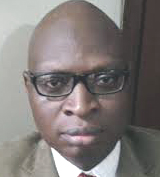
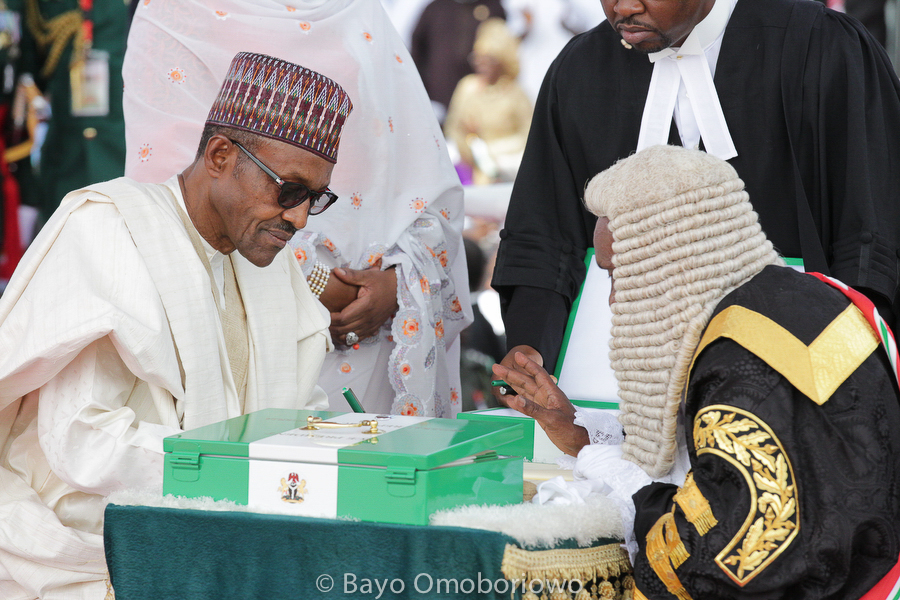
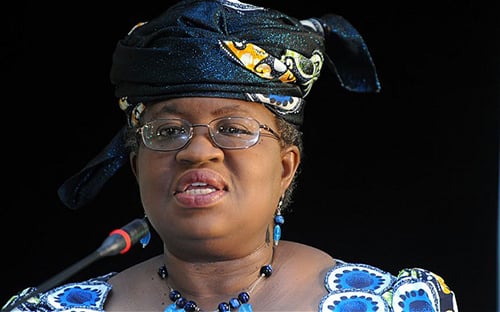
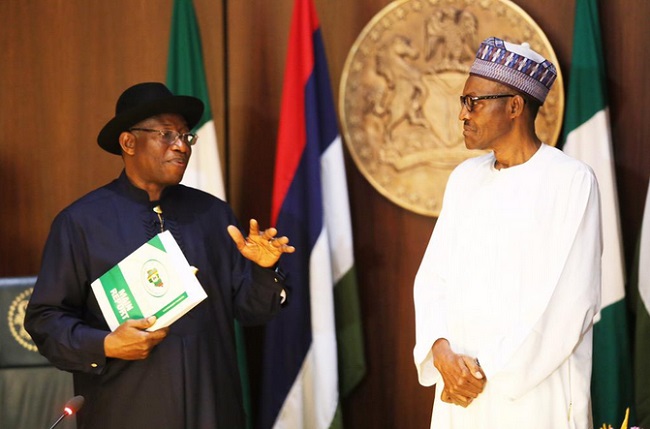
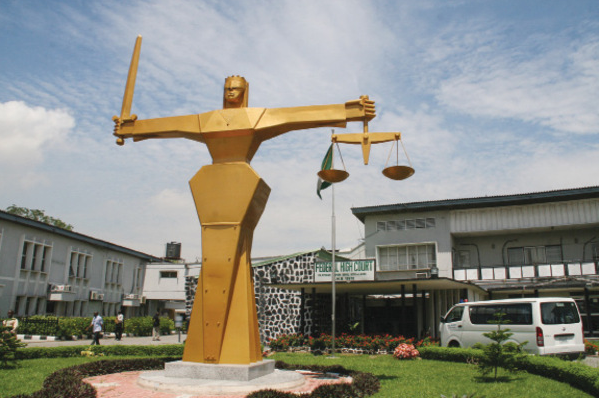
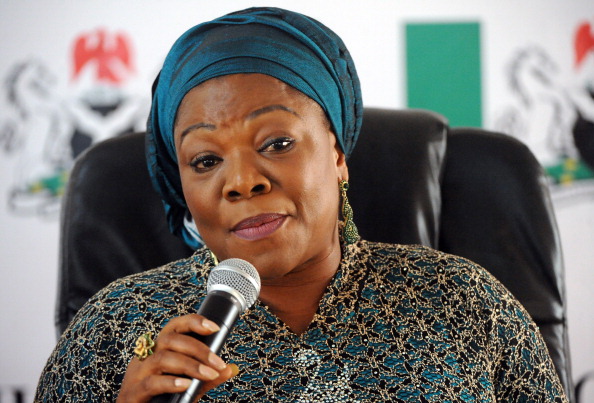
Simply brilliant! May God bless the writer. And may He grant the president the wisdom to listen and do the needful
This is a great article. We pray that God would use Buhari to uproot corruption from Nigeria.
When a nation successfully cleansed itself of corruption; it creates an equal opportunity for all its citizenry to collectively build the nation of their dreams.
Corruption permits a man to take for himself what collectively belong to everyone without attracting punishment that is worse than the benefit of such depriving act.